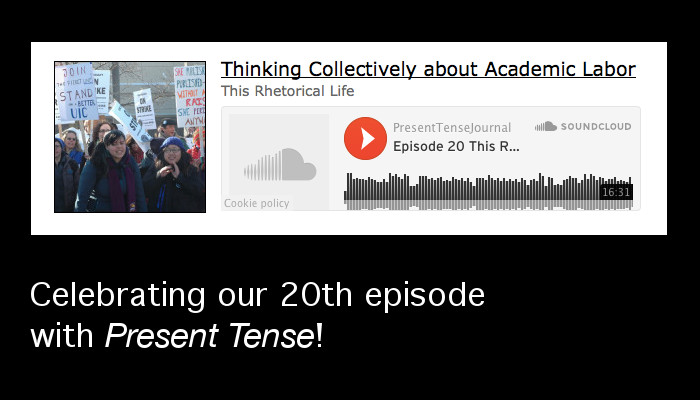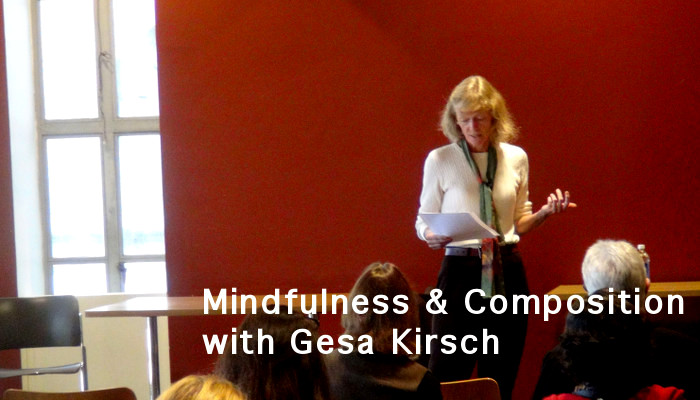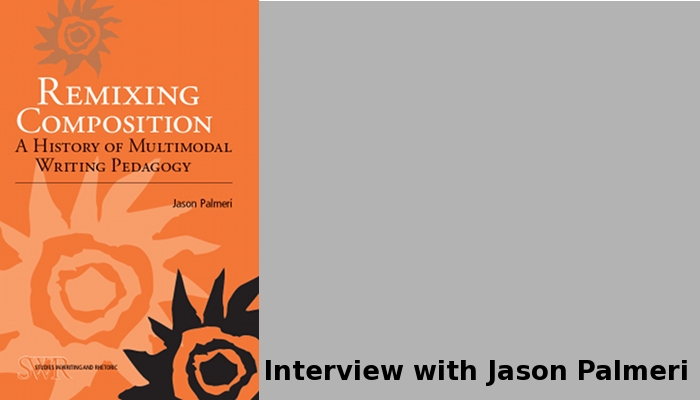A lot of times, contingent faculty do an incredible job of being incredibly professional in unprofessional working conditions. I think that’s the first big cost: the humanity and the economic stability of those folks who are in contingent positions—many of whom are grad students, people who have earned Master’s degrees or Ph.D.s, and obviously made commitments to being in higher education and commitments to wanting to teach and be with students. And, ironically, that group that is often the most committed to teaching—the most committed to being there for students—has to just struggle to be in something that they love to do. — Eileen Schell
We’re happy to share a special collaboration with Present Tense: A Journal of Rhetoric in Society for Episode 20! Academic labor is something that greatly concerns us as graduate students, and we think it’s an important concern for both full-time faculty and contingent faculty. That’s why this podcast features the voices of both full-time (Eileen Schell and Tony Scott are both Associate Professors of Writing and Rhetoric at Syracuse University) and contingent faculty (Jeff Simmons is a Professional Writing Instructor at Syracuse University).
To read a PDF of the full transcript, please download it here: Transcript for Episode 20
The music sampled in this podcast is “N35-40-19-800” by Springtide and “Adventure, Darling” and “Multitudes” by Gillicuddy.
Podcast: Play in new window | Download



